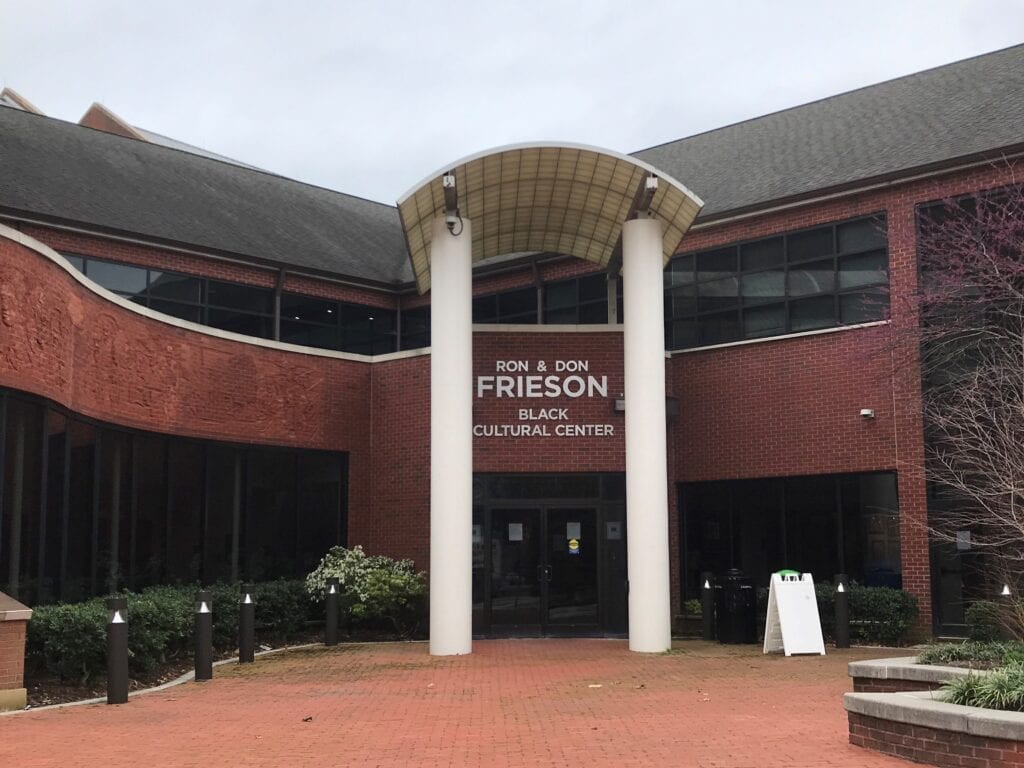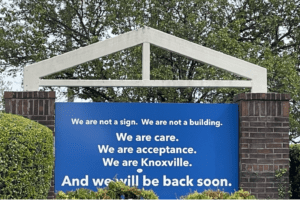UT Multicultural student life hurt by COVID-19
Social distancing measures have hurt many campus communities, including UT’s multicultural organizations, but the widespread administration of a vaccine may give students hope that these communities can pick up where they left off with in-person meetings.

The Frieson Black Cultural Center at the University of Tennessee. (Trinity Worthy)
Feature story by Trinity Worthy
College. Not only is it a hub for higher learning, but it is also a place where students find community. Among the parties, club-hosted events and showcases, students not only gain a broader sense of who is in their community but also an opportunity to dive head-first into their personal interests.
However, COVID-19 has altered the college experience for several communities on the University of Tennessee’s campus, including multicultural student life. Events that were once hosted in person for fellowshipping, educating and occasional catharsis for students of color have had to be altered to fit a virtual landscape. As the country re-opens and the university plans for more in-person classes, organizations such as the National Pan-Hellenic Council are soon to be called to host more in-person events as well.
After nearly a year of adjustment and implementation of virtual events, some organization leaders feel that in-person affairs will not be the same, at least not at first.
“I believe that in the case of a lot of student events on campus, events will be hybrid, next semester, so people have the option to attend in person, if they would like,” Nadia Powell, the president of the Pi Epsilon chapter of Zeta Phi Beta Sorority here at UT said.
Continuing to take precautions is in heavy consideration as the coronavirus vaccine steadily trickles down to the masses and the country re-opens. As vaccines become available to faculty, staff and students who are eligible, the university has already announced plans to host more in-person classes in the fall.
“I think, overall, [opening the university] will be good for people who like to engage, and need that in-person engagement,” Powell said.
Elexis Allen, a senior at the university, echoed Powell’s stance.
“I feel like [in-person classes] should be reserved for classes where you physically have to be there in order to engage, such as labs,” Allen said. “I do like the fact that they allowed people back on campus, to live because I know a lot of people were having a hard time at home because of their family environment or just a lack of resources to achieve at the level they would when on campus.”
When asked about virtual events in comparison to in-person events, Allen said that although many virtual events are cool, she misses the in-person experience.
“It was fun seeing everybody. You may see people you know, and you may even meet new people. In-person events are more interpersonal in that way,” Allen said.
This lack of interpersonality leads to negative effects on virtual events’ attendance rates. According to Powell, in-person events for the sorority would typically have at least thirty people in attendance, whereas the attendance rate for virtual programs ranges from fifteen to twenty-five people.
“Attendance is affected because people are Zoom fatigued at this point,” Powell said.
When it comes to the people who do attend, Powell said some have social anxiety.
“At least when you’re in person, you’re still present,” she said, “whereas being online, you may have your camera off and won’t talk because you may be anxious, so the engagement may not seem as significant.”
Without the same amount of socialization, fellowshipping has taken on a new face this past year. However, the re-opening of the university gives students hope in the revival of multicultural student life and the resumption of in-person fellowshipping.
Edited by Christian Knox and Ryan Sylvia
Featured image by Trinity Worthy



